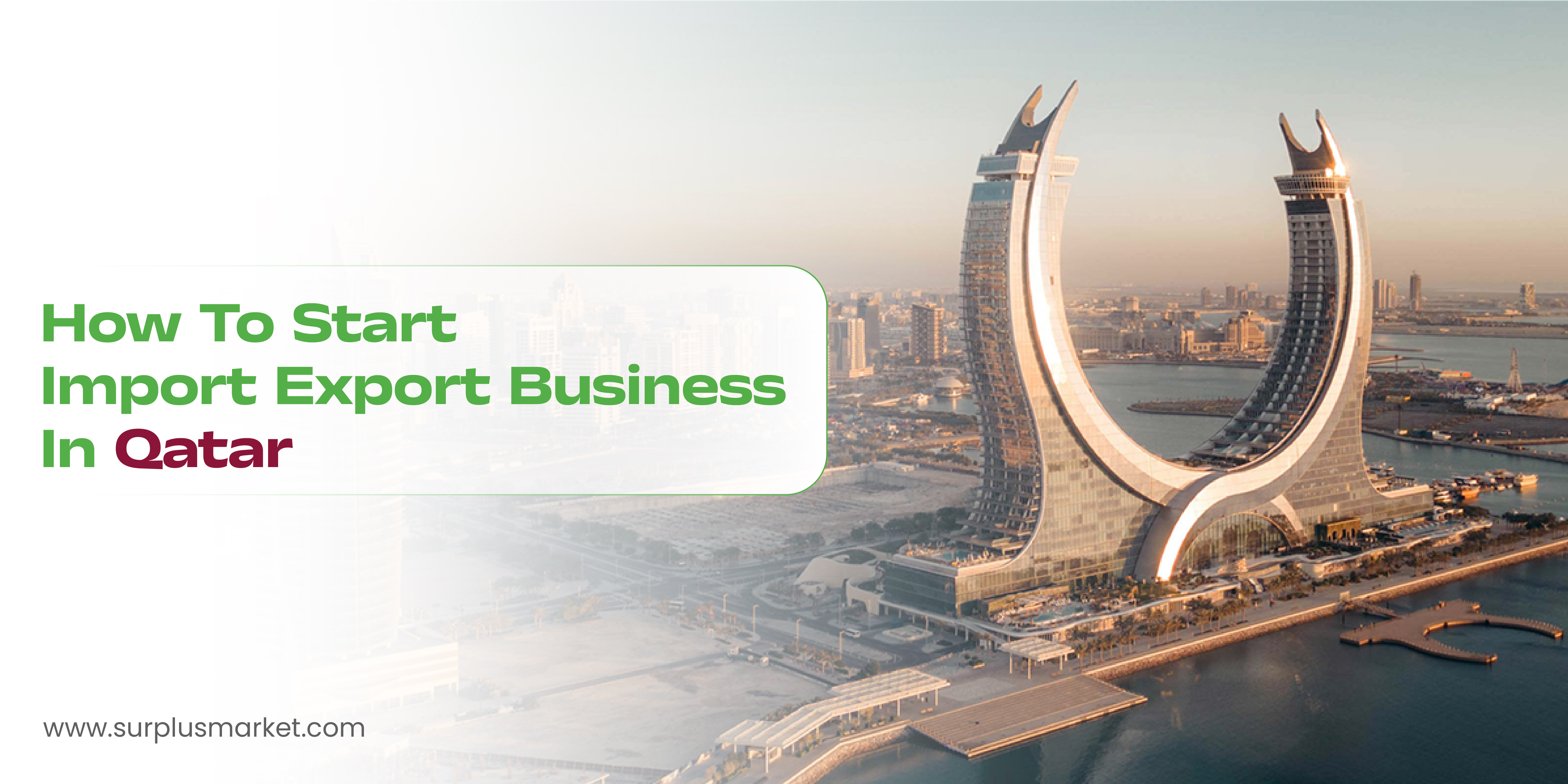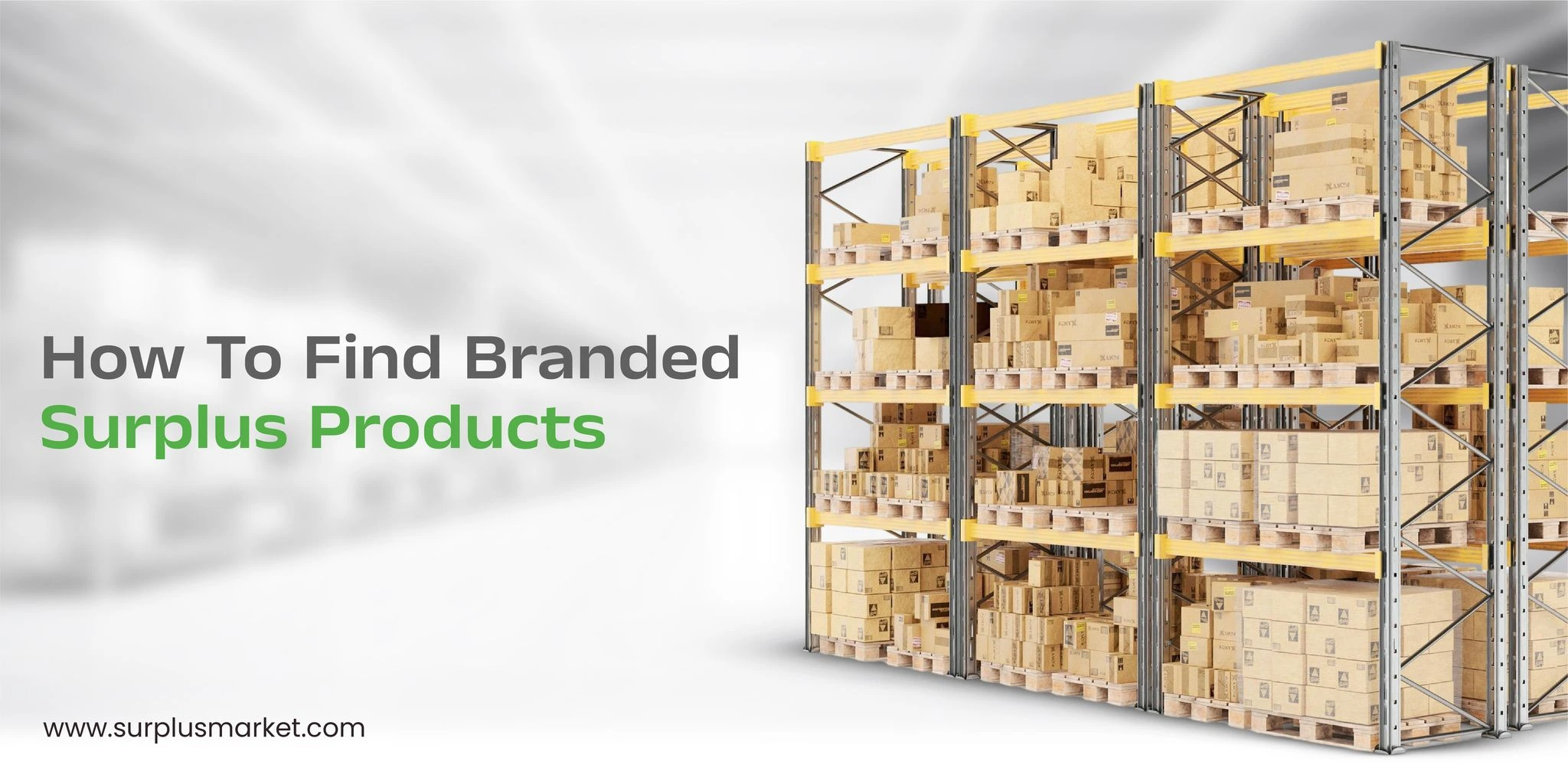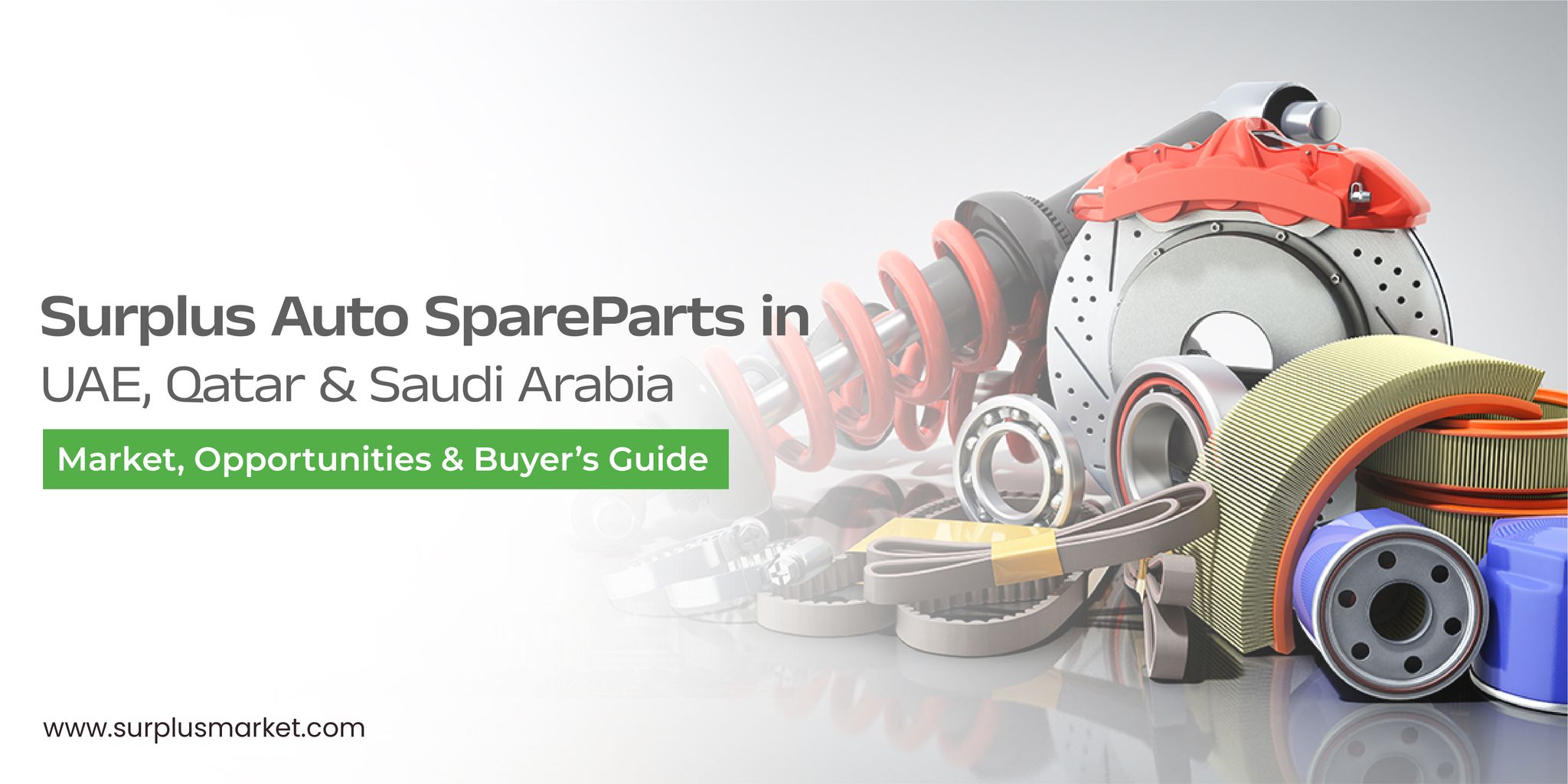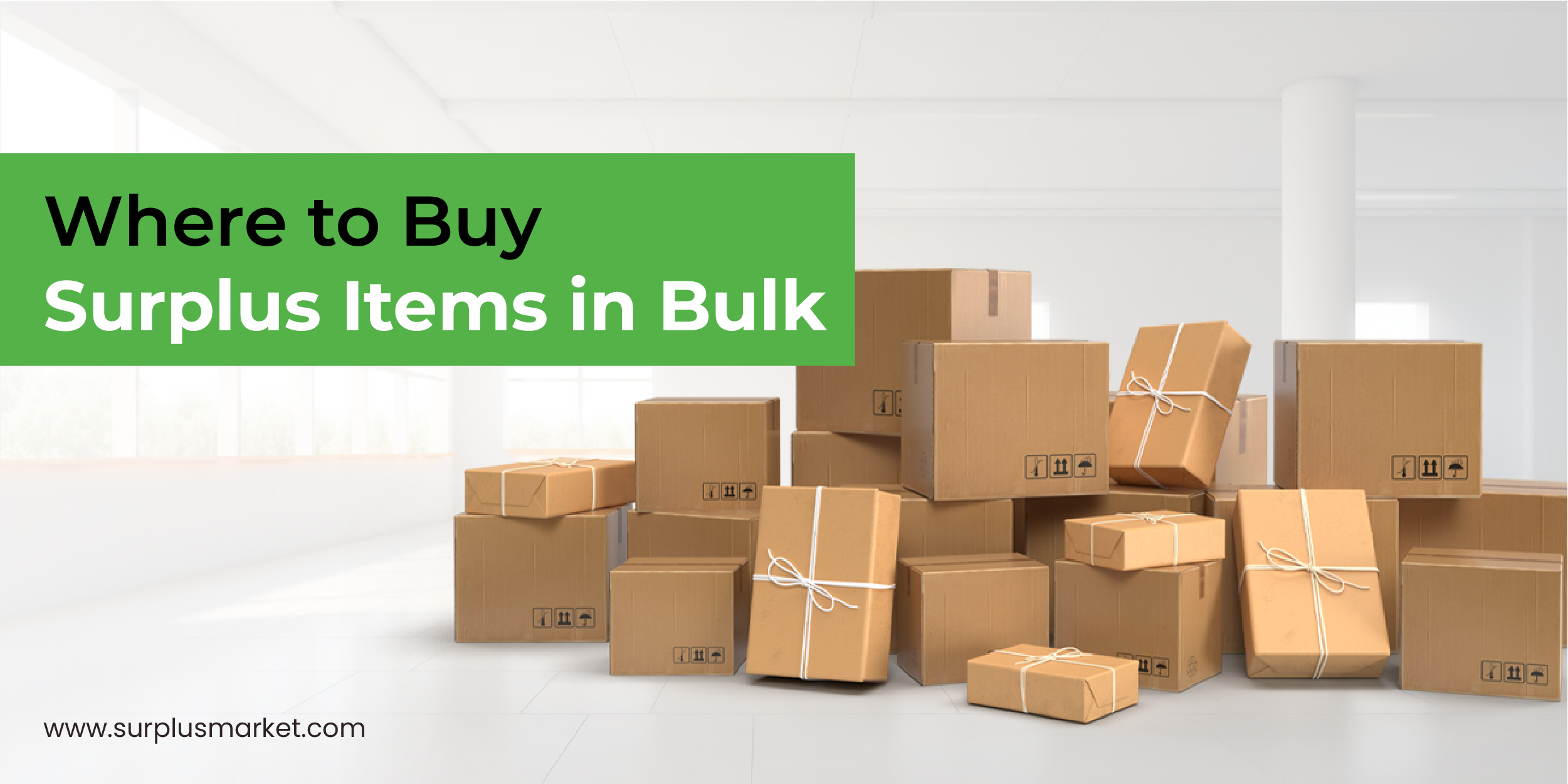How to Start an Import Export Business in Qatar
With strong international trade ties and supportive infrastructure, Qatar is a strategic location and a promising hub for global business ventures. If you're considering how to start an import export business in Qatar, you must understand the setup process, legal requirements, and regulatory framework. With a clear roadmap, turning your trade idea into reality becomes much easier.
Here’s a step-by-step guide to help entrepreneurs build a strong foundation for successful import-export operations in Qatar.
Key Takeaways
- Step-by-step guide to launching an import export business in Qatar
- Licensing, documentation, and legal essentials covered
- Insights into Qatar's import-export rules and compliance
- Learn how Surplus Market can support your trade journey
- Discover the role of tax, customs, and partnerships in your setup
Steps to Setup an Import-Export Business in Qatar
There are a lot of regulatory and operational steps involved in launching an export company or starting an import business in Qatar. If you are a resident entrepreneur or a foreign investor, each requirement ensures compliance with Qatar's economy and commerce framework.
1. Company Registration
Company registration is the first and most crucial step for any business setup in Qatar, especially for foreign-owned entities. This is mandatory and must be completed through the Ministry of Commerce and Industry (MOCI). For the registration, you can either opt for a sole proprietorship company (SPC) or a limited liability company (LLC) depending on your business activity and ownership structure.
2. Import-Export License
Once your registration is complete, you must apply for an import export license in Qatar to legally carry out trading operations. This license is issued by the Ministry of Commerce and Industry which enables your company to import or export goods legally.
Import and export activities are strictly prohibited in Qatar without this license. For application, you need to submit commercial details, ownership documents, and proof of company registration.
3. Commercial Registration
Obtaining a commercial registration in Qatar confirms that your company is legally recognized to operate. It includes business trade name approval, activity selection, and owner/shareholder information. When you start a business in Qatar, this registration is critical, especially for foreign entities and trade companies.
After your business is officially registered, you can start identifying potential trading opportunities across various sectors, and kickstart your operations. One effective way to begin is to explore buyers for surplus inventory, to connect with active import-export partners and align with existing customer demands.
4. Memorandum of Association (MOA) and Articles of Association (AOA)
You must also submit your Memorandum of Association (MOA) and Articles of Association (AOA), to define your company’s objectives, shareholding pattern, and governance structure.
The MOA outlines the scope and purpose of your company’s activities, while the AOA establishes the roles, responsibilities, and procedures within your organization. These documents must align clearly with your intended business operations and comply with regulatory standards, as any discrepancies can lead to delays in approval or future legal complications.
5. Establishment Card
The establishment card, or the computer card is issued by the Ministry of Interior and links your business with Qatar’s immigration and labor systems. This card allows your business to hire employees and apply for work visas and sponsor staff legally. It includes details such as the company’s name, CR number, and authorized signatories. The card is essential for accessing various government services. Besides, it is a vital element of business activity for any company in Qatar and must be renewed annually to remain valid.
6. Chamber of Commerce Membership
To support your export business in Qatar, you need to register with the Qatar Chamber of Commerce and Industry (QCCI). This membership helps you access valuable business resources, trade networks, and legal support.
It also enables you to issue certificates of origin for exports, which is a critical document for international shipments. This not only strengthens your business credibility but also connects you with sector-specific networks and local trade opportunities.
7. Tax Identification Number (TIN)
You must obtain a Tax Identification Number (TIN) for your company by registering with the Public Revenue and Tax Authority. This number is essential for submitting tax returns, opening bank accounts and staying compliant with Qatar’s financial regulations.
Qatar does not impose income tax on most entities. However, corporate taxation may apply in certain sectors, especially when it comes to foreign-owned businesses. Registering ensures transparency and while avoiding future legal complications.
8. Corporate Seal
A company seal is mandatory in Qatar to authenticate official documents. The seal acts as your company’s legal signature and is recognized by government bodies and financial institutions. It is used during trade documentation, agreements, license submissions, and various business correspondences.
Once these steps are completed, your business is officially ready to begin operations in Qatar’s import-export landscape.

Understanding Qatar's Import Regulations
Qatar's import regulations include a combination of national laws, GCC guidelines, and industry-specific standards. Understanding these rules ensures your goods are cleared smoothly without legal delays or complications.
1. GCC Standards
Being a member of the Gulf Cooperation Council (GCC), Qatar adheres to unified customs procedures. These involve standard tariffs, product categories, and mutual recognition of certificates. For example, imported electronics and food items must comply with GCC safety and labeling standards. So, ensure your goods meet GCC import licensing and labeling norms.
2. Specific Product Requirements
Some goods require additional permits, such as a health certificate issued by authorized agencies for food or pharma products. Checking these before planning import/export of regulated goods is crucial as non-compliance can result in delays, penalties, or shipment rejection.
3. Customs Declarations
All goods entering or exiting Qatar must be declared through the General Authority of Customs. To make it smooth, you need to submit invoices, bills of lading, packing lists, and your import-export license. Incorrect declarations can lead to shipment delays, penalties, and loss of business credibility.
4. Local Partner/Distributor
Partnering with a local distributor can simplify compliance, especially if you are a foreign-owned entity or plan to import restricted products. In some cases, appointing a local sponsor or agent is legally required to complete registration or licensing. A local partner can help you manage documentation, liaise with customs and ministries, and ensure smoother logistics and market access.
How Surplus Market Helps
Surplus Market is a powerful digital marketplace that simplifies the trading of excess inventory across Qatar and the region. If you're wondering how to start import export business in Qatar, Surplus Market connects you with wholesale buyers, offers vetted product listings, and supports documentation.
You can:
- Buy and sell surplus inventory with verified partners
- Expand your reach across the Gulf and beyond
- Access support for export licenses and logistics
- Find local buyers or distributors to expand your trade
Surplus Market makes import export business in Qatar more seamless and transparent, for both first-time entrepreneurs or established businesses.
Final Thoughts
When done in the right way, starting an import export business in Qatar can be highly rewarding. However, this involves multiple checkpoints like legal registrations, licenses, customs and partnerships. Also, it is necessary to ensure that your company aligns with Qatar’s local regulations, international standards, and tax obligations.
Platforms like Surplus Market and access to surplus wholesale opportunities offer a head start for those looking to tap into Qatar's growing economy. If you're planning to enter the import-export sector in Qatar, the country offers the ideal infrastructure, policy support, and market access to scale your operations successfully.








